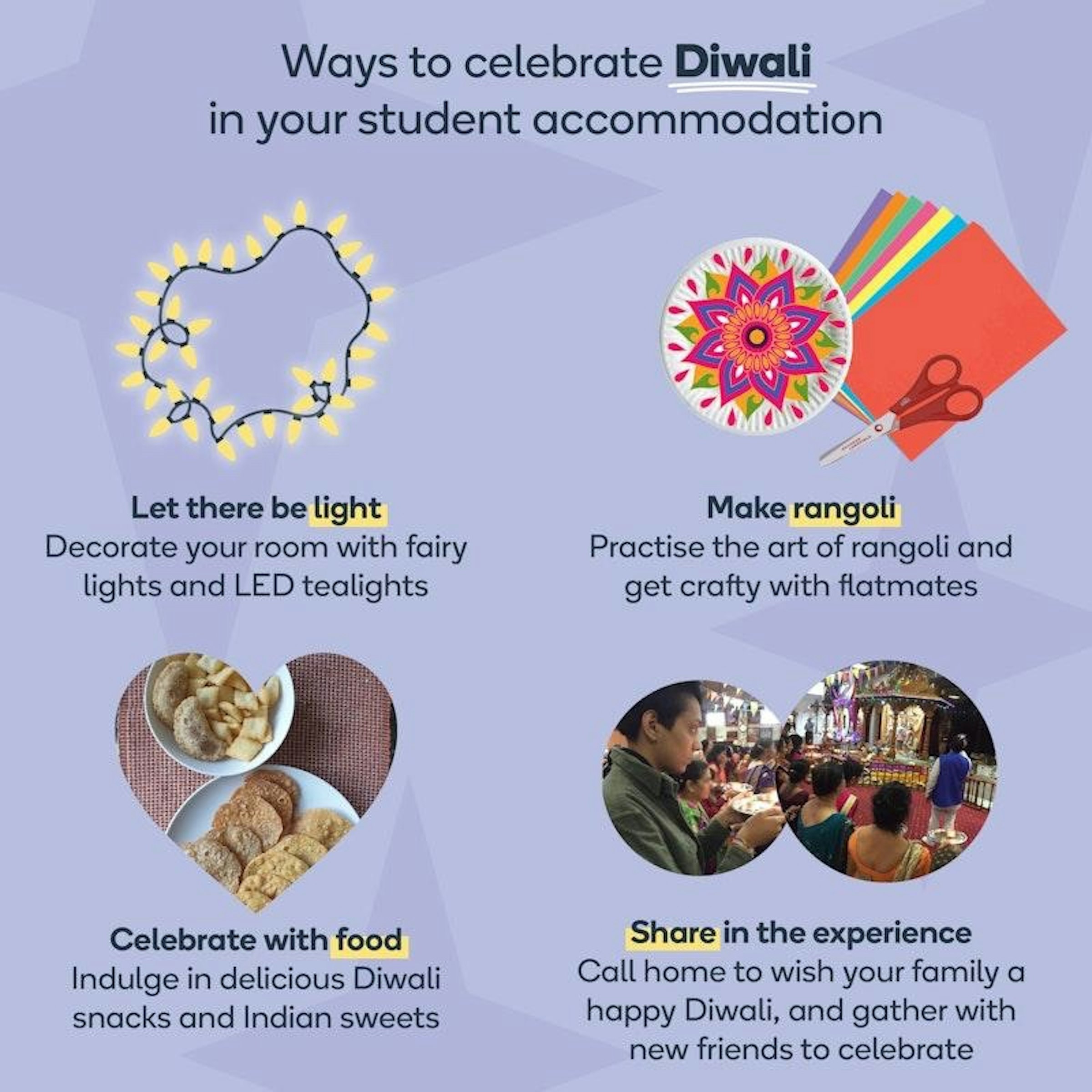Diwali, also known as the ‘Festival of Lights’, is one of the most significant and widely celebrated festivals in India. The festival usually falls between the cold months of October and November. It is a celebration of the victory of light over darkness and good over evil.
What is Diwali?
Primarily a Hindu festival, Diwali is most prominently associated with the traditional story of Rama and Sita. In this story, Rama returns to his kingdom of Ayodhya with his wife Sita, after successfully defeating the demon Ravana in battle.
However, the festival is also celebrated across a range of regions, cultures, and religions. Regional traditions associate the holiday with a variety of deities and riveting tales. Diwali is also a major cultural celebration for other faiths such as Sikhs, Jains, and Buddhists, each having their own individual ways of marking the holiday.
Why is Diwali celebrated?
Just like the wide range of groups who observe Diwali, the ways in which it can be celebrated are equally diverse!
Generally, the festival is seen as an important time for families to come together. People gather to clean and excitedly decorate their homes with diyas (oil lamps) and candles. Doorsteps are lovingly adorned with rangoli, an art of decoration on floors that uses coloured powder. Gifts such as clothes and jewellery are exchanged. Families share delicious meals together and offer prayers in their home or community temples.
It’s a magical time of joy, unity, and spiritual connection.
Diwali as a student – a personal experience of Diwali while living away from home at uni
Harnisha from the Student Roost team shares her own experience of celebrating Diwali away from home:
"When I was a student, I would find little ways to incorporate festivities. After cleaning my room, I decorated my room with fairy lights, LED candles, and other Diwali themed decorations I would craft for the occasion. I’d bring out the Diwali snacks my family lovingly prepared and sent me away with after my last visit home and share with my inquisitive flat mates. And of course, I would also excitedly video call my family on the day to wish them a very happy Diwali.
"I connected with other students celebrating the holiday through Hindu society and enjoyed the events they held. One eagerly anticipated event was the extravagant annual Diwali ball. It was an opportunity for us all to dress to the nines, indulge in fantastic food, and most importantly celebrate the festival with others."

Celebrating Diwali with friends in your student accommodation
Whether you come from the culture to celebrate Diwali or not, part of going to university away from home is to embrace and experience the diverse cultures with friends from around the world. How can you get involved this Diwali?
1. Tidying your space and shop for decorations with your mates
As part of the festival, people clean their homes and decorate their homes with gold as the main colour theme for good fortune. Who doesn’t like a little bit of decorating?!
2. Lights… Lots of lights!
We can’t mark the festival of lights without well… the lights! Traditionally candles and diyas (oil lamps) are used, but we would advise to look at the fire safety regulations in your accommodation before getting any. Alternatively, fairy lights, LED candles, or even LED diyas are inexpensive and readily available in stores or online!
3. Rangoli on the doorstep
Whilst this might not be feasible depending on your accommodation, colouring in some traditional rangoli patterns with colour pens, craft materials, glitters and dried flower petals to put up on your doors can be a great alternative.
4. Gather with your friends for a meal
Traditional Diwali foods vary by region, but general Indian snacks such as samosas, spring rolls, Bombay mix and some Indian sweets are a few tasty options available in local supermarkets. Trying a new Indian meal recipe together would be a fun idea as well
There you have it: the ways in which Diwali can be celebrated are endless, and we're sure that you will enjoy finding ways to mark this much-loved holiday with uni mates. We promise you it will be an unforgettable experience to look back on! Read more student stories on our blog or check out our Insta page to see how our student community celebrates special holidays all year round.




